AOC election, bullying: How Danni Roche and Fiona de Jong stood up to Olympics heavyweights
UNTIL last year, Danni Roche and Fiona de Jong operated in a parallel Olympic universe. But the Australian team’s underwhelming Rio effort marked a turning point for both women.
VIC News
Don't miss out on the headlines from VIC News. Followed categories will be added to My News.
- An Olympic battle of the ages
- Coates fighting for job as review ordered
- ’I got it wrong’: Coates issues apology
- Coates drops champs in AOC conflict
UNTIL last year, Danni Roche and Fiona de Jong operated in a parallel Olympic universe.
A successful businesswoman and 1996 Atlanta hockey gold medallist, Roche sat on the Australian Sports Commission and St Kilda Football Club boards.
A highly respected lawyer and rising star within Olympic ranks, de Jong was chief executive of the Australian Olympic Committee.
The equally impressive pair had something in common — strong relationships with AOC president John Coates.
If the underwhelming Rio effort by an Australian team distracted by politics and outclassed by better-funded rivals was a low point, that and subsequent events also marked a turning point for both women.
Eight months after Coates presided over Australia’s worst Games performance in 24 years, Roche and de Jong had something else in common — they would both tell Coates “enough is enough”.
For Roche, Coates’ public bollocking of ASC chairman John Wylie’s Winning Edge funding model and his attacks on America’s Cup hero John Bertrand and respected business figures Malcolm Speed and Leigh Clifford was the tipping point.
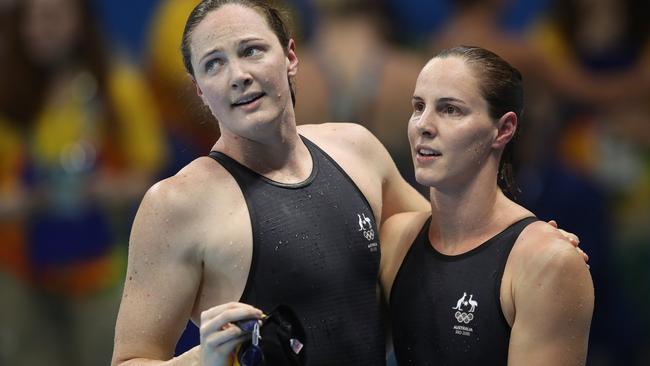
The former Hockeyroo let Coates know in the plainest terms she did not agree with — or approve of — what his opponents insist was a brazen attempt to shift blame for Australia’s sagging 10th-place finish in Brazil.
For de Jong, the motive for change was more personal, driven by allegedly chronic and unaddressed bullying claims within the AOC, many said to involve Coates loyalist Mike Tancred.
By March, with the tacit support of many in Olympic and business circles, Roche decided to walk a pathway untrodden in 27 years by launching a challenge for the AOC presidency.
The battle lines sprang immediately into view.
Roche wrote to Coates offering him a “peace role” as honorary president should he lose next week’s vote.
Coates, who last year was paid a $729,000 package by the AOC, rejected the offer out of hand.
Since that day, the two presidential rivals have embarked on contrasting and frenetic campaigns.
Coates formed a ticket excluding current board members and former champion athletes Nicole Livingstone and Danni Woodward as well as triple gold medallist Rechelle Hawkes and diver Michael Murphy, a Harvard graduate.
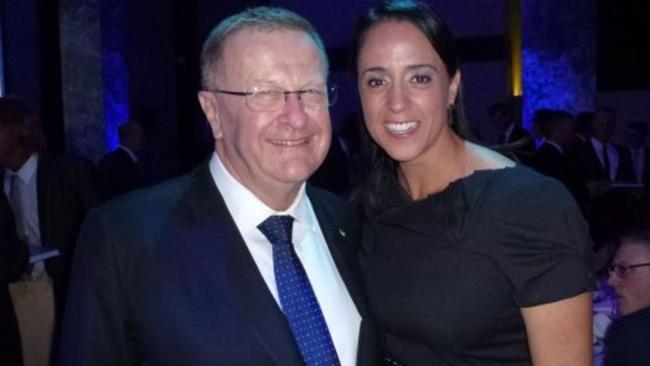
The manoeuvre was condemned as an affront to what had been touted as a “free and fair” election.
Former St Kilda president Andrew Plympton, an ASC and AOC board member, was the first defector, immediately endorsing Roche.
As Roche mustered support ahead of an election once considered a one-horse race but now “too close to call”, de Jong became further entrenched in a stand-off with the AOC.
After resigning, on her last day in the AOC’s plush Sydney office in December de Jong allegedly fielded a telephone call from Tancred over a complaint she had made to Coates.
De Jong claims Tancred said: “Fiona, withdraw the complaint or I will bury you.”
On Wednesday this week, de Jong tabled an explosive dossier to the AOC executive, outlining bullying allegations stretching back to 2004.
Some of them involved alleged threats to kill.
“As a loyal employee and advocate of the Australian Olympic Committee for 12 years, it is both uncomfortable and regrettable circumstances that give rise to the occasion of this letter,” she wrote.
“As the people beside whom I have worked to protect and promote the Olympic movement, I share your concerns about the reputation of the organisation you serve — the AOC.
“And, as individuals entrusted with the leadership of the Olympic movement in this country, it falls upon you to uphold the standards of Olympism this organisation asserts to represent.
“In recent days several inaccurate and misleading accusations have been made including information contained in a letter of 24 April from Mr John Coates to all national (sports) federation presidents & CEOs, delegates to AOC AGM, AOC Executive and Athletes’ Commission members.
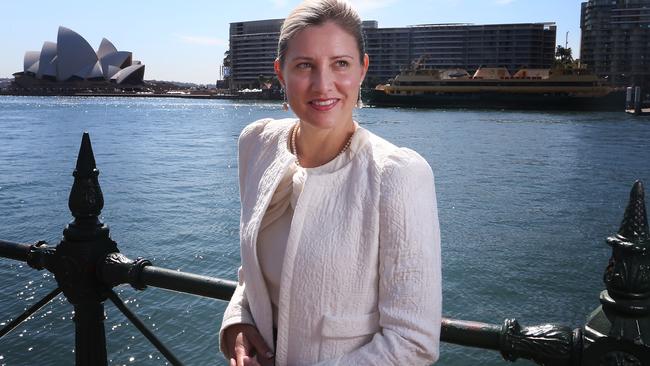
“The purpose of this letter is to raise concerns regarding the handling of my complaint against Mr Mike Tancred, the delay in its determination and how this matter has been portrayed to Australian sports and the media in the context of the culture of the AOC.
“During my time as CEO (I) fought hard to change the culture at the AOC, but was evidently unable to do so.
“All of the above listed employees (subjected to alleged bullying during their time at the AOC) have since left the organisation.
“Sadly this culture has been reflected in the high turnover of permanent staff at the AOC in recent years.
“In closing, I anticipate that by confiding in you the details, it is likely to come at a significant cost to my friendships, professional relationships, and has every prospect of jeopardising my future employment prospects.
“My loyalty is to the Olympic movement and the values it represents. Not individuals who serve under its patronage.”
De Jong’s letter emerged on the morning of an AOC crisis board meeting to discuss the allegations against Tancred and accusations involving questionable workplace practice.
As Tancred stood down from the post he had occupied since 1999, Coates was engulfed in the furore with the release of an email exchange involving a young solicitor suffering leukaemia.
Coates denigrated the employee with a “sheltered workshop” reference, drawing outrage from the broader community but particularly from those within the Australian Paralympic movement who said the comment denigrated the disabled.
An International Olympic Committee vice-president with responsibility for helping organise the 2020 Tokyo Paralympics, Coates apologised.
“It was the wrong choice of words,” he said.
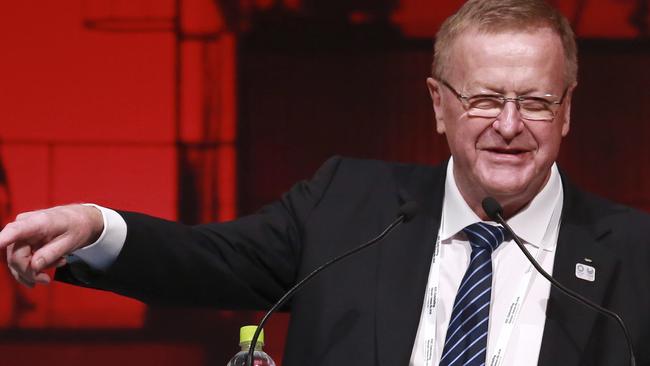
As Roche condemned the comments, Federal Sports Minister Greg Hunt rebuked Coates, saying: “I want to make it absolutely clear that language which flippantly casts aspersions on those with disabilities is not appropriate and has no place in Australian public or private discourse.”
As Coates agreed to an independent probe into the bullying allegations and a separate review of AOC workplace culture, Roche continued to meet national sports federations.
Sensing a “very strong momentum for change, and many sports are telling me that they do want change”, Roche vowed to deliver immediate change.
“Many sports are also telling me that they are very concerned around the allegations that have been presented in the last few weeks,” she said.
“I don’t think anyone in sport likes to see these allegations made, me included. No one likes to see sports on the front pages of the paper for the wrong reasons.
“What’s important for sports to consider is how they want sports to look in the next four years.
“My message is around collaboration with the peak bodies in Australian sport.
“To bring cohesion back into sport so that Australian sport can collaborate and thrive again.”
Roche, 46, dismisses suggestions she is Wylie’s “stalking horse” amid rumours unsuccessful approaches had been made to Bertrand, James Tompkins and Jeff Kennett.
“The Olympics has always been a part of my life. By the time I was six years old, I was dreaming of representing Australia at the Olympic Games, as my father (Ken) did in Tokyo in 1964.
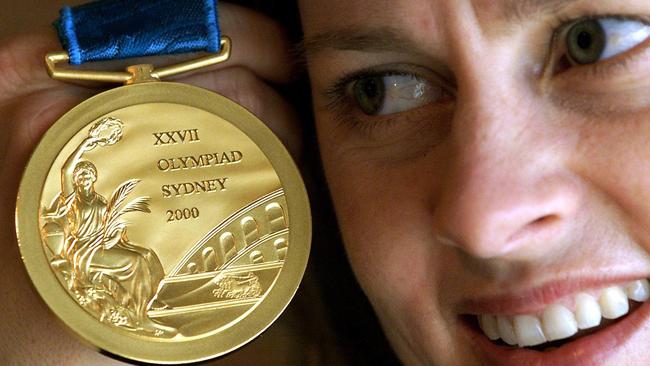
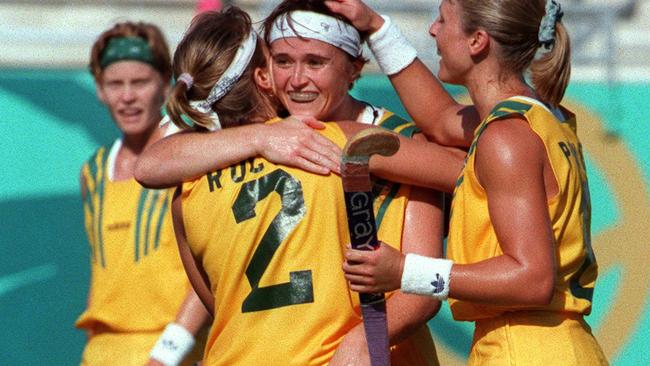
“Winning gold with the Hockeyroos in Atlanta in 1996 was the highlight of my hockey career and the realisation of a dream I held for as long as I can remember.
“Not many people get to compete for their country at an Olympics and I felt lucky to have been afforded such an opportunity.
“No matter the sport, Australia has always had an incredible depth of talented athletes. I want to make sure that every one of them has the opportunity to succeed.
“That’s why I’m running for the presidency of the Australian Olympic Committee. Behind every Australian to have competed at the Olympic Games is a team. It is a team of national federations, state bodies, local clubs, institutes and academies. It is a team of athletes, training and coaching staff, medical staff, volunteers, administrators and officials.
“The team has a simple goal: to provide our athletes with every chance to succeed. “The Australian Olympic Committee is a critical part in that team, and I believe it is not performing at its peak.
“The Australian Olympic Committee needs new leadership. It needs to make sure that every available resource is directed to sports and athletes. It needs to lead a new culture of collaboration in our sport.”
Pointing to a difference in origins, Coates’ allies have taken aim at Roche as hailing from a “billionaire family”, a reference to her father Ken’s property and mining business, Roche Holding.
Coates, 66, by contrast, was raised in Strathfield, in Sydney’s inner west and attended Homebush Boys High School. A cricket fan, Coates gravitated to rowing and was cox for his school in several regattas.
Coates’ connection with rowing endured through his studies at the University of Sydney’s law school.
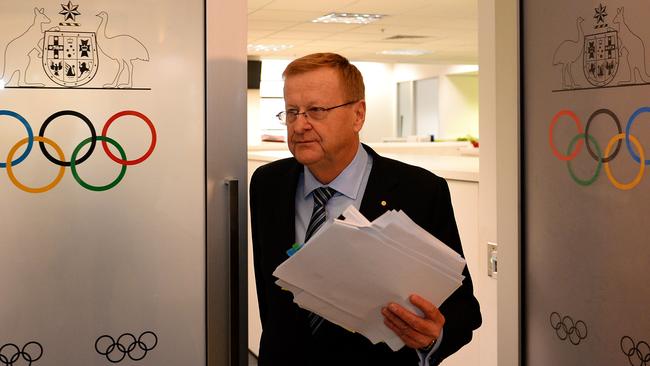
He became involved with Rowing Australia before starting his Olympic career at Montreal in 1976 as section manager for rowing.
Since then he has climbed steadily through the rankings. Coates has served on the AOC since 1981, and was vice-president from 1985 until succeeding Kevan Gosper as president in 1990.
He has been a member of the IOC since 2001, becoming vice-president in 2013.
He is currently on the Tokyo 2020 co-ordination and legal affairs commissions.
Roche’s pledge to slash the presidential allowance to $100,000 has gained traction with federations now getting little financial support.
“I will work in an honorary capacity, which will allow $3 million over a four-year period to be put back into sports and athletes,’’ she said.
“Every dollar that can be saved out of administration and driven back into sports and athletes is a win.’’
Roche said she would also commission a line-by-line review of all spending to cut salaries and administrative and marketing costs.
Another initiative — interpreted by Coates’ supporters as a disrespectful swipe at the loyalty of a man who has served on the AOC board since 1981 — is to introduce term limits for AOC members and the president, and modernise its constitution.
Coates spends much of his time overseas as IOC vice-president and president of the International Council of Arbitration for Sport. His supporters claim his removal would preclude him from continuing with the IOC.
The AOC vote, featuring a record 16 contenders across three different elections, pits Coates’ vast experience, influence and political nous against Roche’s push for regeneration, financial restructuring and a returned focus to athletes and sports.
Many interpret the vote as not merely a battle of the ages, but of gender and philosophy.
Coates maintains he is still the best person for the job.
Roche says it is time for change.


